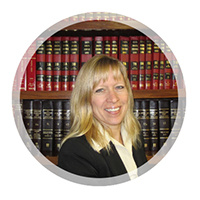Montrose Misdemeanor Lawyer, South Dakota
Not enough matches for Montrose Misdemeanor lawyer.
Below are all Montrose Criminal lawyers.
Mary R. Ash
✓ VERIFIEDCriminal, DUI-DWI, Divorce & Family Law
Attorney Mary Ash has over a decade of experience with criminal defense, child custody and divorce law. If you've been looking for a trustworthy local... (more)
Janet C. Olson
✓ VERIFIEDCriminal, Divorce & Family Law, Federal, Juvenile Law, Federal Appellate Practice
Jan graduated from the University of South Dakota in 2001 with a major in Criminal Justice and a minor in Political Science and received her Juris Doc... (more)
Thomas R Hensley
Administrative Law, Criminal, DUI-DWI, Domestic Violence & Neglect
Status: In Good Standing
Richard L. Travis
Criminal, Family Law, Insurance, Litigation, Workers' Compensation
Status: In Good Standing
Mark J. Arndt
Dispute Resolution, DUI-DWI, Insurance, Business, Personal Injury
Status: In Good Standing
Manuel J. de Castro
Accident & Injury, Sexual Harassment, DUI-DWI, Household Mold
Status: In Good Standing
Wilson M. Kleibacker
Criminal, Federal Appellate Practice, Family Law, Wills
Status: In Good Standing
Mark J. Welter
Criminal, Personal Injury, Car Accident, Workers' Compensation, Wrongful Death
Status: In Good Standing Licensed: 37 Years
FREE CONSULTATION
CONTACT


